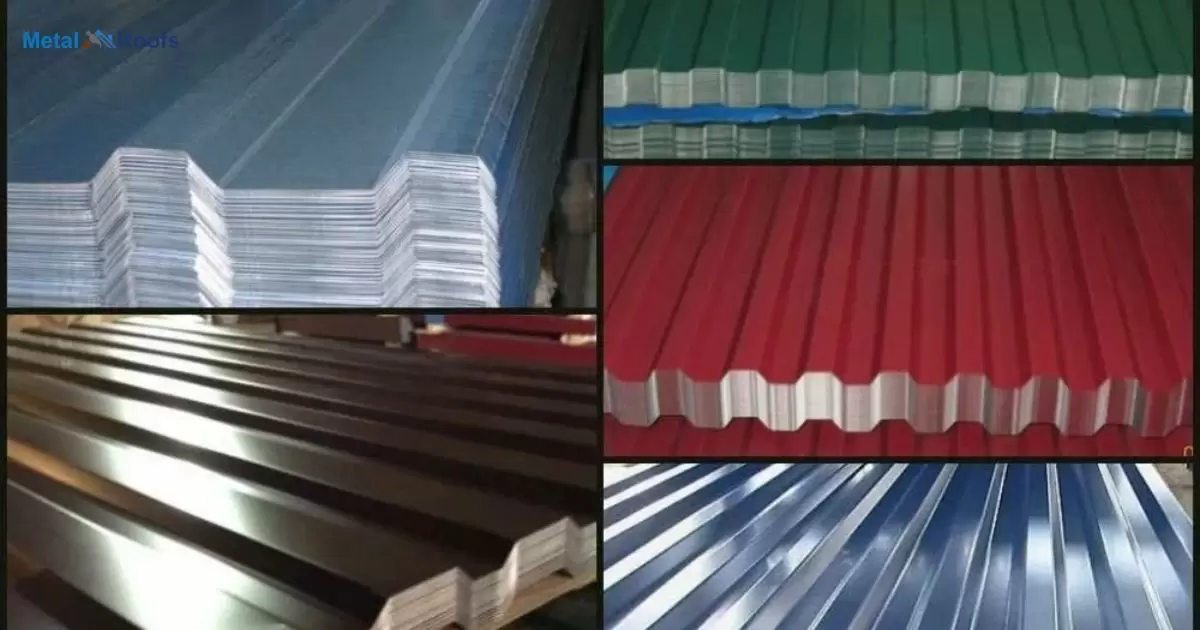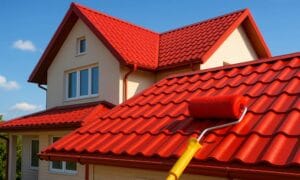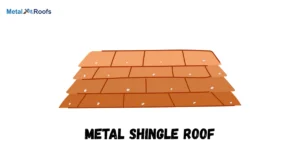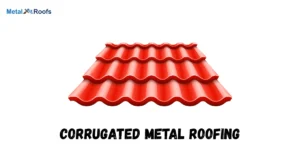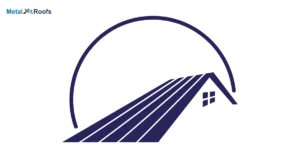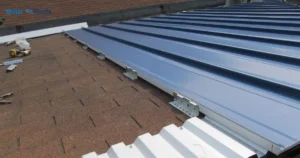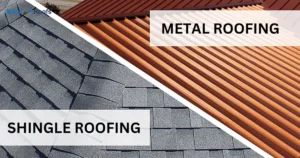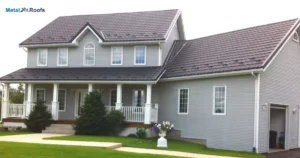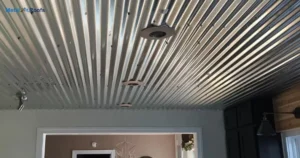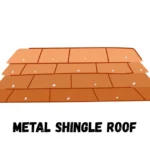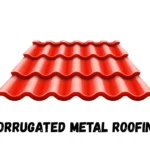Metal roofing sheets shield homes. They resist fire, rot, insects. Sheets interlock for wind resistance. Colors include green, red, blue. Metal reflects sun for cooling. Sheets last decades with coatings. Installation needs skilled labor. Metal roofing suits varied climates.
Metal roofs last for generations. They protect homes from nature. But how wide is metal roofing sheets? Standard widths range from 12-36 inches. Larger sheets mean fewer seams. Seams can allow leaks over time. Proper installation is crucial. Pick width based on roofer’s skills.
Sheet width affects installation. Wider sheets need fewer overlaps but are heavier. Narrow sheets are lighter but have more seams. Proper underlayment, like 1 inch foam insulation under metal roof, is essential. Installers must follow specifications. Experienced roofers ensure quality.
Key Takeaways
- Metal roofing sheets vary in width by type and manufacturer.
- Typically 26-36 inches (66-91 cm) wide.
- Usually 12-24 inches (30-61 cm) wide.
- Commonly 36 inches (91 cm) wide.
- Often 24 inches (61 cm) wide.
- Actual coverage is slightly less than sheet width.
Metal Corrugated Roofing Sheets
Metal corrugated roofing sheets are popular for their durability and strength. They come in widths ranging from 26 to 36 inches. The 36-inch width is the most common choice. These sheets are easy to install and maintain.
People use them for residential and commercial buildings. They offer good protection against weather elements. The wavy design helps with water runoff. This makes them ideal for areas with heavy rain.
Patio Roofing Panels
| Type of Patio Roofing Panel | Material |
| Polycarbonate | Plastic |
| Aluminum | Metal |
| Fiberglass | Composite |
Patio roofing panels come in various styles and materials. Common options include metal, polycarbonate, and vinyl. Each type has its own benefits and drawbacks. Metal panels are durable and long-lasting.
Polycarbonate panels allow natural light while offering UV protection. Vinyl panels are affordable and easy to install. Consider the climate and your needs when choosing panels. Always check manufacturer guidelines for installation and maintenance.
Cheap Metal Roofing Sheets
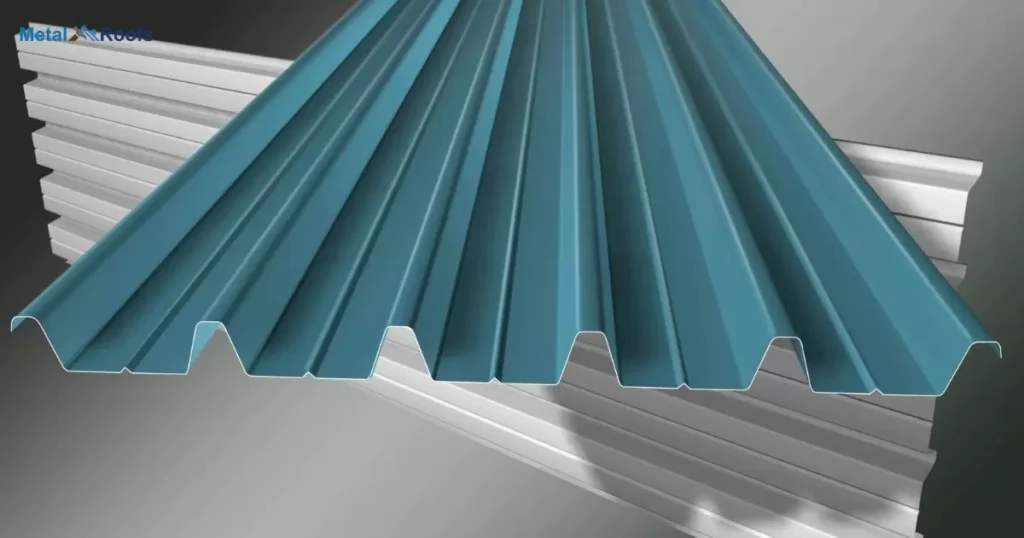
Metal roofing sheets come in various widths, depending on the type and manufacturer. They are typically affordable options for roofing solutions. Corrugated sheets, commonly 26-36 inches wide, offer a cost-effective choice for many projects. Standing seam sheets, around 12-24 inches wide, are another economical option.
R Panel sheets, often 36 inches wide, and 5V Crimp sheets, typically 24 inches wide, provide further choices. Actual coverage width might be slightly less than the sheet width, so it’s important to check the manufacturer’s specifications for precise dimensions.
Roofing Sheets Price
Roofing sheet prices can fluctuate significantly, influenced by material, type, and size. Among the options, metal sheets tend to be pricier, especially those made of aluminum or steel. The local market and prevailing trends also impact the cost, with bulk purchases potentially leading to discounts.
It’s crucial to compare prices from various suppliers, considering additional expenses like warranties and installation fees to make informed decisions about the best value for your roofing project.
Corrugated Roofing Panels
Corrugated roofing panels come in various widths, typically ranging from 26 to 36 inches. They provide sturdy coverage for roofs, with the 36-inch width being most common. These panels feature a distinctive wavy pattern that adds strength and rigidity to the structure.
Installation of corrugated panels is straightforward, making them a popular choice for both residential and commercial buildings. These panels overlap during installation, ensuring a tight seal against the elements. They are often made from durable materials like galvanized steel or aluminum, offering long-lasting protection against weathering and corrosion.
How Wide Is Metal Roofing After Overlap?
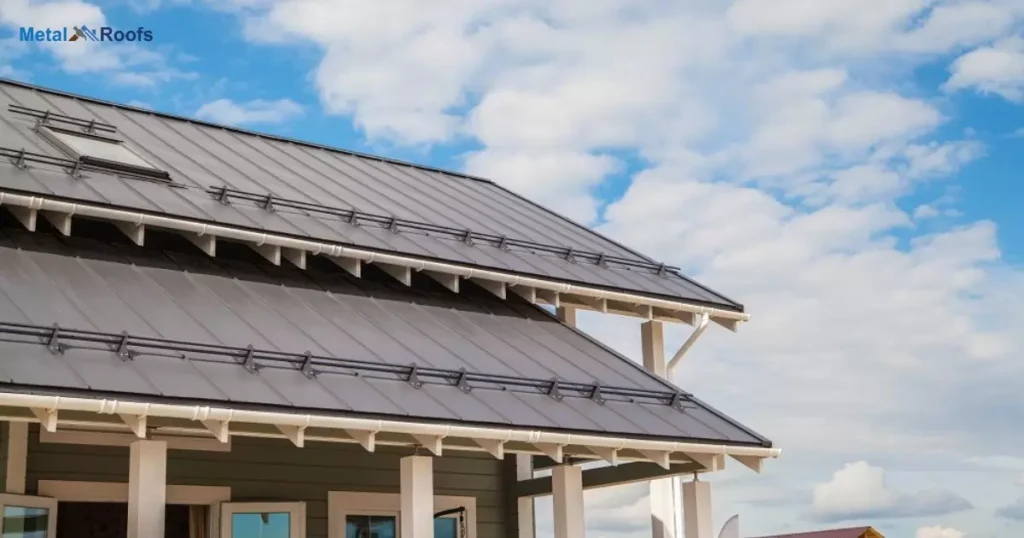
After overlapping, metal roofing appears slightly narrower. This accounts for the overlap required during installation. Corrugated sheets, typically 26-36 inches wide, might cover around 24-34 inches once overlapped. Similarly, standing seam sheets, usually 12-24 inches wide, may cover about 10-22 inches after overlap.
R Panel sheets, common at 36 inches wide, might cover approximately 34 inches post-overlap. And 5V Crimp sheets, often 24 inches wide, could cover roughly 22 inches after overlap. It’s vital to consider this reduction in width when planning the coverage for a project. Always refer to manufacturer specifications for precise measurements.
Corrugated Sheet Size In Feet
Corrugated metal sheets typically come in standard sizes, measured in feet. These sizes often range from 8 to 12 feet, providing ample coverage for roofing or siding projects. The most common widths are 26 and 36 inches, ensuring compatibility with various structures and designs.
When selecting corrugated sheets, it’s essential to consider the dimensions in feet to accurately estimate the amount needed for your project. These standardized sizes make it easier to plan and execute installations, whether for residential or commercial purposes.
What Are Metal Roofing Sheets?
Metal roofing sheets are durable sheets made of metal. They come in various types, like corrugated, standing seam, R Panel, and 5V Crimp. Each type has a different width, with corrugated sheets typically ranging from 26 to 36 inches wide. Installation requires overlapping the sheets to ensure proper coverage.
Definition And Purpose
Metal roofing sheets are durable covers made from metal, serving as protective layers. They shield buildings from elements like rain, wind, and snow, ensuring longevity. These sheets come in various types and widths to suit different construction needs.
Types Of Metal Used
Metal roofing sheets are made from various types of metals. Common options include steel, aluminum, zinc, and copper. Each metal offers different properties like durability, corrosion resistance, and aesthetics.
Coatings And Finishes
Metal roofing sheets come with various coatings and finishes. These include galvanized, galvalume, and painted options. Coatings protect against corrosion and enhance aesthetics.
What Are The Disadvantages Of Metal Roofing Sheets?
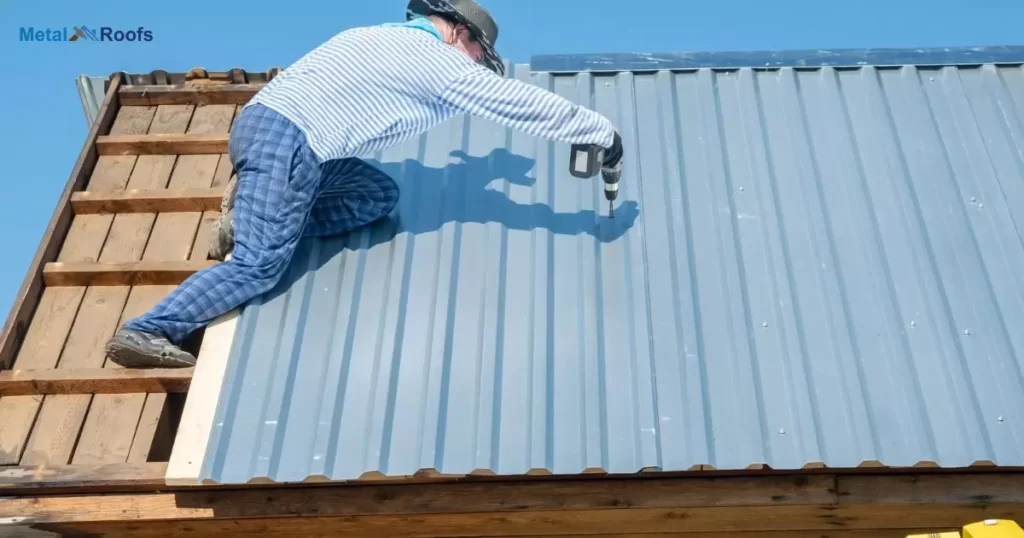
Metal roofing sheets have their drawbacks. They can be noisy during rain, amplifying the sound. In extreme weather, they might dent or get damaged easily. Insulation is crucial as metal roofs conduct heat, leading to higher energy costs.
Improper installation can result in leaks over time. Regular maintenance is necessary to prevent rust and corrosion, adding to upkeep expenses. Lastly, while durable, metal roofs might be prone to scratches and require careful handling during installation and maintenance.
Frequently Asked Questions
What Is The Standard Width Of Metal Roofing Sheets?
Metal roofing sheets come in various widths corrugated (26-36 inches), standing seam (12-24 inches), R Panel (around 36 inches), and 5V Crimp (about 24 inches).
What Is The Width Of Aluminium Roofing Sheet?
Aluminum roofing sheet widths vary, with corrugated sheets typically 26-36 inches wide and standing seam sheets usually 12-24 inches wide.
What Is The Standard Size Of Roofing Sheets In Mm?
Metal roofing sheets vary corrugated sheets are 660-910mm wide, standing seam sheets 300-610mm, R panel sheets commonly 910mm, and 5V crimp sheets around 610mm.
Conclusion
Metal roofing sheets offer durability and versatility in construction. With types like corrugated, standing seam, R Panel, and 5V Crimp, they cater to various needs. Their widths vary, such as corrugated sheets typically spanning 26 to 36 inches wide.
Installation requires overlapping the sheets, ensuring proper coverage on roofs. It’s essential to consult manufacturer specifications for precise dimensions and guidelines. With their resilience and diverse options, metal roofing sheets stand as reliable choices for many construction projects.
